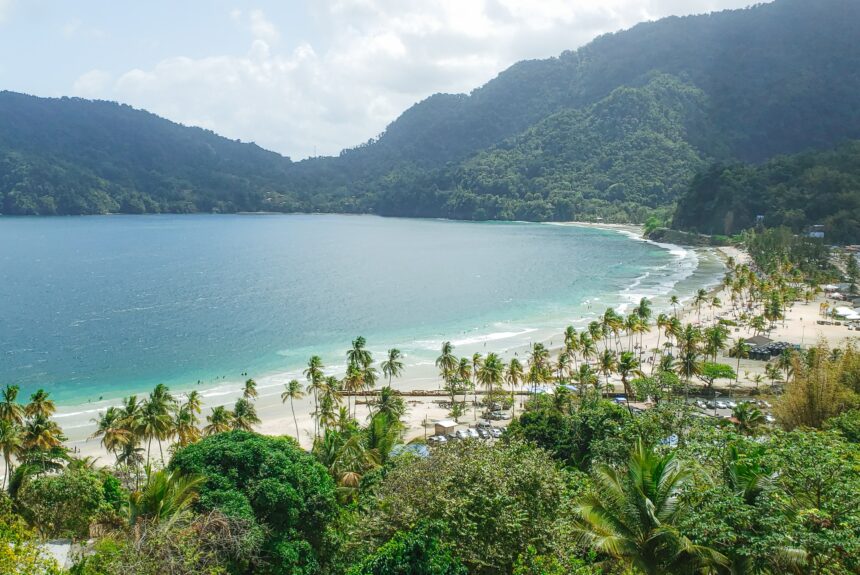As part of a series leading up to COP28, let’s look at the ways individual countries are showing leadership on green growth.
Not long ago, most countries just focused on the bottom line: Gross Domestic Product (GDP). A positive GDP meant a growing economy. But there is a new factor in play these days. Countries need economic development, but more and more people are demanding not just growth, green growth. Countries, and their leaders in particular, are looking for ways to grow while having less impact on the environment. But what does green growth mean? And how do you measure it?
>>>READ: Economic and Environmental Lessons from the United States
It’s important to consider that for something to be green, it must be sustainable over a long period of time, and ultimately beneficial. No country can afford to invest in green energy if it leads to a weakened economy or national security. Sustainable green growth must thread the needle of improving a country’s economy, environment, and national security. Otherwise, the concept is not sustainable.
Many countries are succeeding at threading that needle. The solutions will look different from country to country, region to region, and continent to continent. Still, the best way to encourage green growth is by allowing people to live and work in economic freedom.
A country’s commitment to economic freedom results in more wealth and human progress, which increases the available resources and technologies to invest in environmental protection. Free economies are clean economies where people and planet alike can flourish. This is true at the macro level, as our Free Economies Are Clean Economies report shows in great detail.
At the micro level, however, economic freedom manifests in different ways. Later this month, world leaders will gather at the annual United Nations Climate Change Conference or COP28. Even as that conference begins, Trinidad and Tobago is still trying to find ways to climb in the Heritage Foundation Index of Economic Freedom. It earns a rating of “Mostly Unfree” with a “mixed economic system.” Still, it has a GDP growth rate of 2.48%.
The country is trying to leverage areas where it has an economic advantage. Stuart Young, MP, says his government is committed to pursuing Trinidad and Tobago’s decarbonization efforts after the 2030 Paris Agreement targets. It is leaning into green hydrogen, for example. “The Government recognizes the importance of creating the right enablers through regulations, policies, and incentives, that will support the development of this green hydrogen economy,” Young says.
A report released last year notes that “Trinidad and Tobago now has the opportunity to be one of the first countries to add Green Hydrogen to its energy product mix, thus further enhancing the country’s contribution to global decarbonization efforts.”
There is more to the economy than hydrogen. “When it comes to the evolving energy landscape, Trinidad and Tobago will continue to play a major role as a natural gas exporter whilst leveraging existing heritage and facilities to attract investment from around the globe and exploit green energy carriers, thereby ensuring sustainable economic growth in the future,” the report says. “The transformation of Trinidad and Tobago can mirror Singapore, also an island nation, which started as an oil trading hub.”
>>>READ: Economic and Environmental Lessons from Switzerland
The country may also tap into wind power. “An initial estimate of the potential areas available for offshore development indicates that on average Trinidad and Tobago could access up to 57 gigawatts (GW) of offshore wind across fixed and floating technologies,” the government reports. “Based on desktop modelling, this equates to 25 GW in average energy output.”
Trinidad and Tobago is highlighting the importance of using many different sources of energy instead of having the government pick a winner. Over time, that will allow the most efficient sources to grow in a competitive market. In every sector, deploying economic freedom will be key. The way to unlock the power of society and the private sector is by giving people the freedom to innovate. Strict government mandates, on the other hand, are a path to failure.
COP 28 begins November 30 in the United Arab Emirates. As we have in recent years, the Conservative Coalition for Climate Solutions, or C3 Solutions, will be there to host events that promote the importance of economic freedom. Ours is a message of hope that balances the reality of the need for green growth that is truly sustainable. For the sake of people and the planet, let’s hope that leaders listen.
The views and opinions expressed are those of the author’s and do not necessarily reflect the official policy or position of C3.
